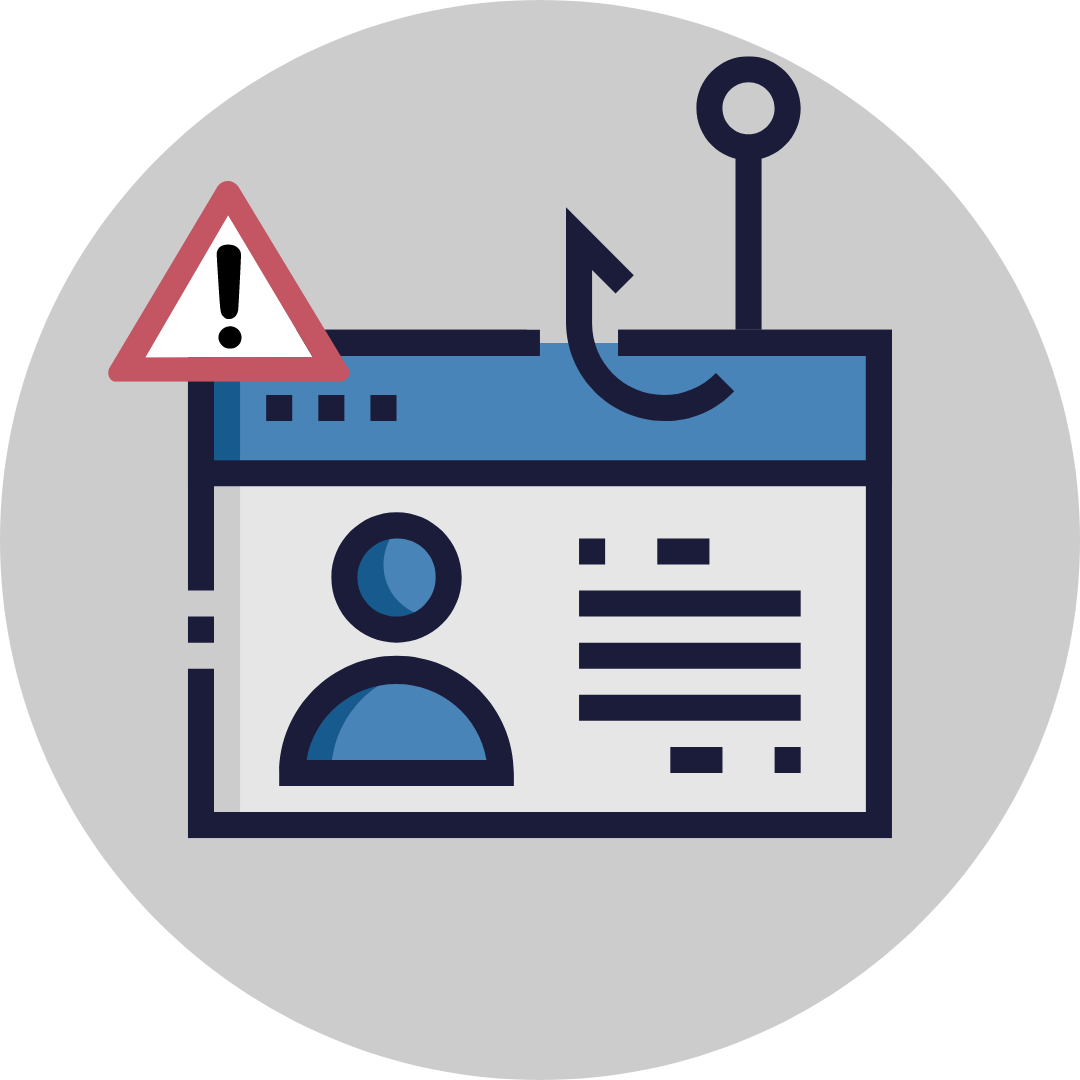Identity Theft
Identity theft is when someone wrongfully obtains and uses another person's personal information, such as their name, social security number, or financial data, to commit fraud or other malicious activities. Victims of identity theft may:

- Lose hundreds or even thousands of dollars to thieves and/or to fees for cleaning up financial records.
- Spend countless hours clearing personal records and restoring their identity.
- Be refused loans for housing or cars due to poor credit resulting from identity theft.
- Be arrested for crimes they didn't commit.
It is important to take steps to prevent identity theft and to report any incidents of identity theft that occur.
Prevent Identity Theft
The following practices are essential to help prevent identity theft:
- Use Secure Passwords: Use strong, unique passwords for each online account, with a mix of letters, numbers, and special characters, and avoid using easily guessable information like birthdays or names. Never disclose your passwords to anyone, even if they say they work for UC Santa Cruz, ITS, other campus organizations, or companies of which you are a customer.
- Protect Personal Information: Be cautious about sharing personal details, especially online and over the phone. Never give sensitive information to unsolicited callers or emails. Use a paper shredder when throwing out hard copies of personal or private information.
- Regularly Monitor Accounts: Routinely review bank statements, credit reports, and online accounts to detect any suspicious activity promptly. Order a copy of your credit report from each of the three major credit bureaus: Equifax, Experian, and TransUnion. Make sure it's accurate and includes only activities you've authorized. You can get one free report from each of these services per year.
- Use Secure Wireless Networks and Devices: Keep devices up-to-date with the latest software and security patches to minimize the risk of data breaches and hacking attempts. Encrypt your devices and sensitive information.
The following practices can also help prevent identity theft:
- Use known, trusted websites when you are logging in or providing information online. Don't log in or provide sensitive information to a web page you reached by clicking on a link in an email, IM, text message, advertisement, social media, or internet search results.
- Look for "https" (not http) in the web address (URL) and a padlock icon in the corner of any page that asks you to input your password or personal information.
- Secure computers, laptops, and mobile devices at all times: keep them with you or lock them up. Make sure a password is required to login or resume activity on your device.
- Protect others' information as if it were your own.
Report Identity Theft
Reporting identity theft is crucial, as it allows authorities to take immediate action, mitigating financial losses and preventing further harm while helping victims regain control of their personal information and restore their financial security. If you believe you are the victim of identity theft:
- Contact the UC Santa Cruz Police Department at (831) 459-2231.
- Report it to the ITS Support Center.
- File a complaint at the FBI’s Internet Crime Complaint Center (IC3).
Identity Theft Resources
If you are a victim of identity theft, the following resources provide information that can help you limit the damage of identity theft:
- The California Attorney General's Identity Theft Victim Checklist.
- The Federal Trade Commission’s Report Identity Theft and Get a Recovery Plan page
- The U.S. Department of Justice's Identity Theft and Identity Fraud page.
Get Help
Contact the ITS Support Center or your ITS Divisional Liaison if you have questions about identity theft.

